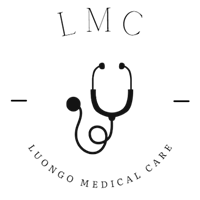inding quality, affordable health care is becoming more difficult, especially for those without private or government-funded health insurance. Patients lucky enough to have health insurance find it difficult to find primary care doctors who are independent of large hospitals or medical groups. Patients often report being referred to different medical providers.
WHY do people visit the emergency room?
Many have: chest pain, abdominal pain, respiratory tract infection, stomach pain, back pain, fractures, lacerations, toothache, and head injury. Many people choose the emergency room out of fear of the unknown, for sick infants and young children. (“This, I understand”)
The cost of a visit: The cost of treatment in the emergency room varies depending on the complexity, the time taken to manage the condition, and especially the laboratory and imaging tests requested.
Average cost of emergency room visits.
In the United States, in 2019, the AVERAGE cost of an emergency room visit for people WITH a doctor was $1,082. Without health insurance, the AVERAGE cost was $1,220.00.
BUT in states like Connecticut and New York, the AVERAGE was OVER $3,000! (Based on data collected 3 years ago.)
Why is the visit so expensive?
Emergency department staff must be ready to treat patients with acute, life-threatening medical problems.
Emergency departments are open 24 hours a day, so personnel (labor) is a significant cost (includes maintenance staff, medical staff and physicians).
How are costs determined?
To the exam, you are charged an installation or filing fee, approximately $500.00. Then you must add the cost of the medical center (emergency department), add the doctor’s fees, blood draws, blood work, imaging and other tests, and the fees of the specialist doctors, if they are consulted.
Insurance coverage vs. payment
Having health insurance coverage does not equal free care. Patients with health insurance often pay a higher copay, “out-of-network fees” and high deductibles. You are billed separately by departments, specialists, so you see the charges sent to you, months after your visit, after the insurance company pays the hospital a “lower negotiated rate.”
IF YOU PAY ON YOUR OWN (without health insurance), You will be billed in full (non-negotiated rate), weeks later. Some, but not most patients choose to try to negotiate their multiple bills. Initiating contact with hospital business personnel can be challenging and frustrating if English is not your native language and you have limited medical knowledge.
Alternatives to the ER:
Consider these alternatives (unless you are facing a true medical emergency).
- Primary care providers (physician, physician assistant, nurse practitioner) are best for your health problems that are not life threatening. Unfortunately, doctors are scheduled weeks in advance, so same-day or next-day openings are rare.
- Urgent care: The cost is usually much less than the ER (if NOT owned by a hospital). The number of staff is getting lighter as they are bought by large healthcare management companies.
- Telemedicine visit: Telemedicine was popular during the pandemic, today it often must be paid for upfront with minimal insurance reimbursement.
- Health clinics: “Free” clinics are another option, although they are NOT convenient for uncomplicated acute illnesses, as appointments can be offered within a week. (Assuming you’re already an established patient, or MONTHS if you need a specialist consultation or expensive test.)
THE LAW about receiving care in the Emergency Department:
“Give all patients a medical screening. Stabilize any patient with an emergency medical condition. Transfer or accept appropriate patients as needed.” (EMTALA, CMS.gov., 2022). Regardless of solving your problem / pain or not, you are responsible for the great fracture doctor.
Conclusion: The Emergency department is typically NOT the best place to go for non-emergency care, as costs are up to $ 10 times more EXPENSIVE than in an Urgent Care office or Primary Care doctor.
The Act states that everyone who visits the emergency room, regardless of ability to pay, will receive a “medical screening and stabilization exam.” But the law doesn’t establish the need to find out the cause of the medical complaint or the need to solve the patient’s problem (if it is not a danger to life or limb). This is especially true if you don’t have health insurance!
